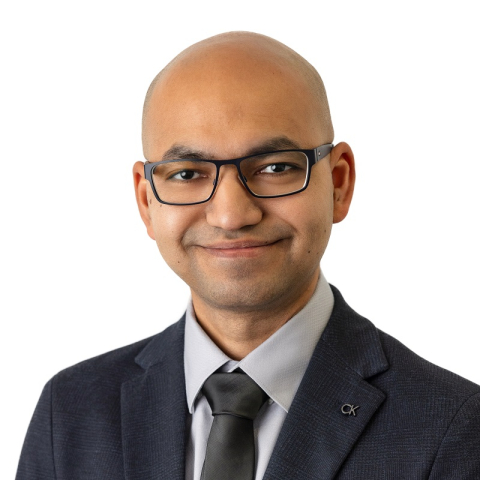WHAT IS A COLONOSCOPY?
Colonoscopy is an examination of the lining of your colon, also called the large bowel or large intestine. This procedure is used for diagnosing and treating a variety of problems that can be found in the colon. A colonoscope is a long, thin (about the thickness of a finger), flexible tube with a camera in the tip. This instrument is inserted via the rectum into the colon, advancing slowly round the colon, capturing all the images of the inner lining of your bowel. This image is transmitted to a monitor which your specialist looks at during the procedure.
ABOUT YOUR BOWEL PREPARTION
A clean bowel is essential for a successful colonoscopy. To help you prepare for your procedure, you will be given an instruction sheet detailing:
• your dietary restriction – you will need to go on a low fiber diet starting two days prior to your procedure
• your bowel cleansing preparation solution and when to take this
Please ensure you read your instruction sheet thoroughly and if you have any questions, please contact Greenlane Medical Specialists.
WHAT TO EXPECT DURING A COLONOSCOPY
Please come in loose comfortable clothing. Nail polish should be removed or have clear nail polish only.
On arrival, a nurse will take history of your current health and past medical problems. Please inform the admitting nurse of any allergies and bring in a list of all the medications you are currently taking. Afterwards, you will be asked to change into a gown. If necessary, enema’s will be given at this point if bowel motions are not clear.
Your specialist will then take you through to theatre. An intravenous sedative will be given by the doctor to help you relax and better tolerate any discomfort. Additional oxygen will be given throughout the procedure and a probe will be placed on your finger to monitor your blood oxygen levels and your heart rate.
You will either be lying on your side or on your back.
Your specialist will start the examination by inserting the colonoscope via the rectum and slowly advance the length of the colon. The captured images will be transmitted to the monitor, visualizing the lining of the colon during the procedure. Depending on the indication of the procedure, the end of the small bowel (terminal ileum) may also be included. As the scope withdraws, the lining of the bowel is once again carefully examined.
During your procedure, if your specialist thinks an area needs further evaluation, a biopsy (a sample of the colon lining) will be taken and sent to the Pathology Laboratory for analysis. Biopsies are used to identify many conditions including inflammatory bowel disease amongst others.
HOW LONG WILL A COLONOSCOPY TAKE
This procedure itself usually takes approximately 20 to 25 minutes, although it may take longer if polyps are found and to be removed. You should plan on a total of one to one and a half hours for the whole procedure and recovery.
WHAT ARE POLYPS
Polyps are abnormal growths in the colon lining. They are usually benign (noncancerous). However, if left, may become cancerous over time. Polyps vary in size, from a few millimeters to several centimeters.
HOW ARE POLYPS REMOVED
Your specialist will usually remove polyps using a wire loop passed through the scope and an electrical current called ‘polypectomy’. For smaller polyps, they may be removed with biopsy instruments. You should feel no pain during a polypectomy. The polyps will then be sent to the Pathology Laboratory for analysis.
AFTER YOUR COLONOSCOPY PROCEDURE
Once your examination is completed, you will be taken on your bed to the recovery room. You will be monitored until the effects of the sedation has worn off.
Your specialist will then explain the results of the examination to you. Your procedure report will be ready before you are discharged, however, biopsy results may take up to five working days before they are ready. A copy of your report will go to your usual General Practitioner. Your specialist may contact you to let you know about your biopsy result. Otherwise please contact your GP.
Due to the sedation administered for this procedure, your judgment and reflexes may be impaired, even if you feel alert after your procedure. Therefore, it is very important that you have someone arranged to drive you home and stay with you for the next 12 hours. During this period of time, you should not operate on any machinery or make any important decisions. DO NOT drink any alcohol for 24 hours after your procedure.
You may have some cramping or bloating as air was introduced into the colon during the procedure. This should disappear quickly with the passage of gas and you should be able to eat normally after the procedure, except in rare cases.
COMPLICATIONS
Colonoscopy and polypectomy are generally safe procedures when performed by specialists trained and experienced in endoscopy.
Significant complications can occur in up to 1 in 1000 patients. The two most common ones being ‘perforation’ - a hole in the bowel wall (there is an increased risk of perforation if there is a large polyp needing to be removed) and bleeding.
• Perforation can be fixed by surgery and occasionally even by sealing the perforation with clips at the time of the procedure.
• Bleeding is usually minor and, even if serious, can be treated via colonoscopy and rarely require surgery.
Some patients might have a reaction to the sedatives or complications from underlying heart or lung disease.
CONTACT US
If you have any questions about the procedure, why you need one, alternative options, costs or insurance cover, please contact Greenlane Medical Specialists.











